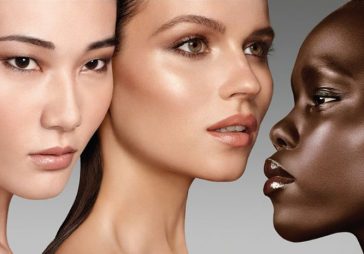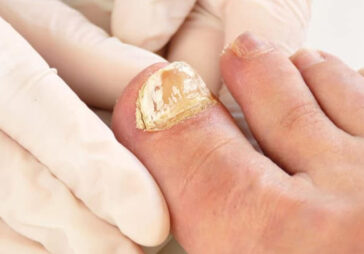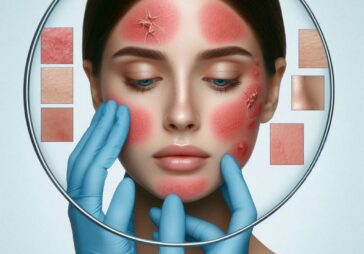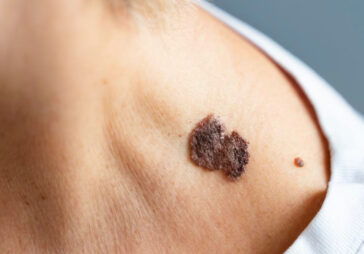In the ever-evolving world of skincare, myths and misconceptions abound, often leading to confusion and ineffective routines. Sorting through these myths is crucial for achieving optimal skin health and avoiding unnecessary frustration. In this article, we’ll debunk some of the most common skincare myths and provide evidence-based information to help you make informed decisions about your skincare routine.
Myth 1: You Only Need Sunscreen on Sunny Days
Fact: UV rays can penetrate clouds and affect your skin even on overcast days. Sun damage accumulates over time, regardless of the weather. Daily application of sunscreen with at least SPF 30 is essential for protecting your skin from harmful UV rays and preventing premature ageing and skin cancer.
Tip: Apply broad-spectrum sunscreen every day, even when indoors, as UV rays can also penetrate windows.
Myth 2: Oily Skin Doesn’t Need Moisturizer
Fact: All skin types, including oily skin, need moisture. Skipping moisturizer can lead to dehydration, causing the skin to produce even more oil to compensate. Choose a lightweight, non-comedogenic moisturizer to keep your skin hydrated without clogging pores.
Tip: Look for gel-based or water-based moisturizers if you have oily skin.
Myth 3: You Don’t Need to Exfoliate if You Have Sensitive Skin
Fact: Exfoliation is important for removing dead skin cells and promoting cell turnover, even if you have sensitive skin. The key is to use gentle exfoliants that are suitable for your skin type. Avoid harsh scrubs and opt for mild chemical exfoliants with ingredients like lactic acid or enzymes.
Tip: Exfoliate 1-2 times a week to avoid over-exfoliation and irritation.
Myth 4: Natural Products Are Always Better for Your Skin
Fact: Natural products can be beneficial, but they are not always superior to synthetic ingredients. Some natural ingredients can cause allergic reactions or irritation. It’s essential to choose products based on their formulation and how well they address your specific skin concerns, rather than solely relying on the “natural” label.
Tip: Always patch-test new products and consult with a dermatologist if you have specific skin concerns.
Myth 5: Expensive Products Are More Effective
Fact: The price of a skincare product does not necessarily correlate with its effectiveness. The efficacy of a product depends on its ingredients and how well they address your skin’s needs. Sometimes, affordable products can provide excellent results if they contain high-quality, active ingredients.
Tip: Focus on ingredients and formulations rather than brand names or price tags.
Myth 6: You Can Shrink Pores with Skincare Products
Fact: Pore size is largely determined by genetics and cannot be permanently changed. However, you can minimize the appearance of pores through regular cleansing, exfoliation, and the use of products that help control oil and improve skin texture. Ingredients like niacinamide and salicylic acid can help reduce the appearance of pores.
Tip: Use a pore-minimizing primer to create a smoother appearance before applying makeup.
Myth 7: You Should Change Your Skincare Routine Regularly
Fact: Consistency is key to achieving and maintaining healthy skin. Constantly switching products can disrupt your skin’s balance and lead to irritation or sensitivity. Stick to a routine that works for your skin type and concerns, and only introduce new products gradually.
Tip: Allow a new product at least 4-6 weeks to show results before deciding whether to switch.
Myth 8: Drinking Water Will Completely Clear Up Your Skin
Fact: While staying hydrated is important for overall skin health, drinking water alone will not resolve complex skin issues like acne or eczema. Water helps maintain skin hydration but addressing skin concerns often requires a combination of factors, including a balanced diet, proper skincare, and, in some cases, medical treatments.
Tip: Aim to drink plenty of water, but also focus on a comprehensive skincare routine and a healthy diet.
Myth 9: You Only Need to Apply Skincare Products at Night
Fact: Many skincare products, including sunscreen, are essential for daytime use. Sunscreen protects your skin from UV damage and is crucial for preventing premature ageing and skin cancer. Other products like serums and moisturizers can benefit your skin around the clock.
Tip: Incorporate both morning and evening skincare routines for comprehensive care.
Myth 10: Acne is Caused by Poor Hygiene
Fact: Acne is not solely a result of poor hygiene but rather a combination of factors, including hormonal changes, excess oil production, and clogged pores. Over-washing your face can strip the skin of its natural oils, potentially worsening acne. Proper, gentle cleansing is important, but it’s only one part of managing acne.
Tip: Use a mild, non-comedogenic cleanser and follow a routine tailored to your acne type and skin needs.
Conclusion
Debunking common skincare myths is essential for developing an effective skincare routine that truly benefits your skin. By relying on accurate information and evidence-based practices, you can make informed choices and achieve healthier, more radiant skin.
Whether you’re looking to track your skin’s progress or get expert advice tailored just for you, Skinive AI Dermatologist is here to help. Don’t wait—give your skin the care it deserves and unlock a healthier, more radiant you. Click the link to download the Skinive App and start your journey to flawless skin!










